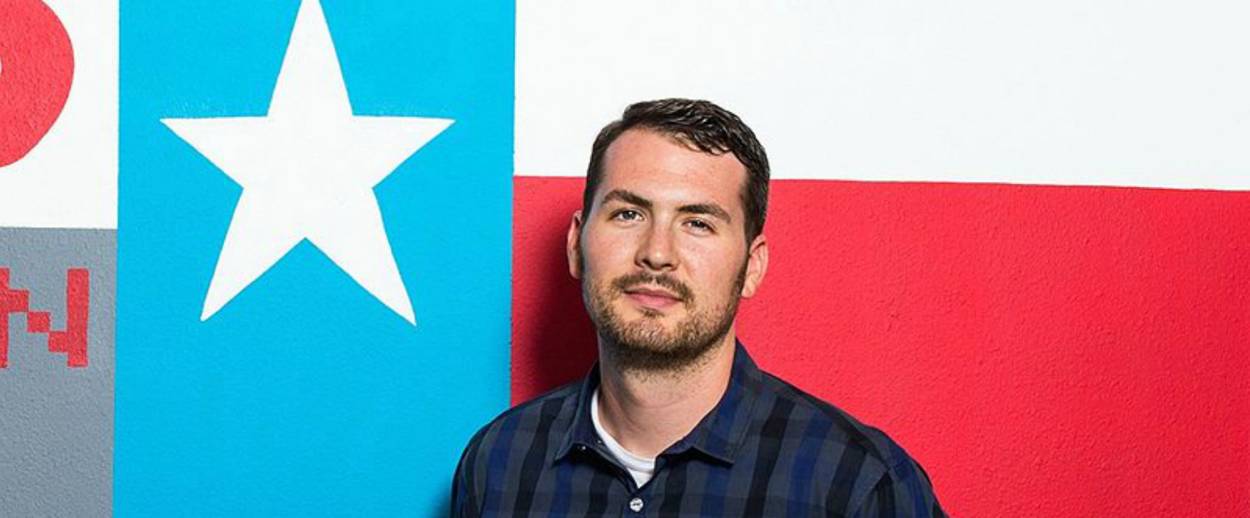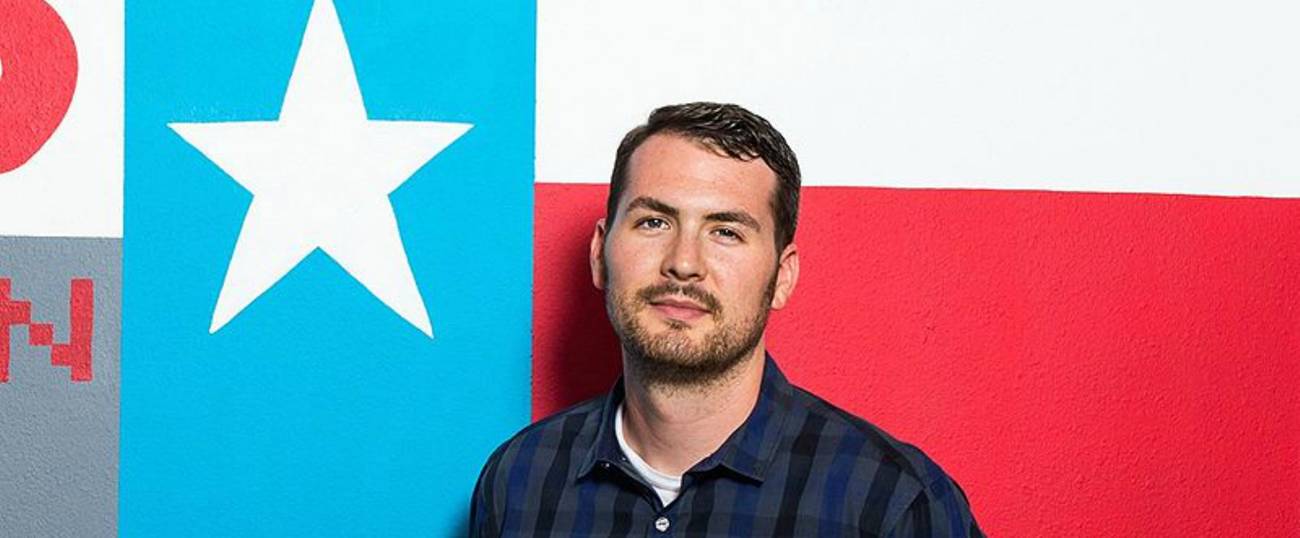Meet the Austin-Based Digital Strategist Who Helped Bibi Get Reelected, and Now Works for Trump
Vincent Harris aided Likud’s online presence in the stunning March 2015 vote. Can he work his magic for Trump, too?




Donald Trump’s flagging presidential campaign received a rare nugget of encouraging news this week. On Tuesday, Politico reported that Trump has secured the services of Vincent Harris, one of the Republican party’s up-and-coming digital strategists who has also helped the Likud party’s digital efforts during Israeli Prime Minister Benjamin Netayahu reelection bid in 2015.
“Harris has been in the vanguard among Republicans trying to tap into social media and the viral powers of the Internet to amplify a candidate’s message,” reported Politico. Harris successfully deployed a number of his methods within a far different, and in some ways even more challenging electoral environment than the one he’s liable to face in the upcoming U.S. presidential contest. Harris, who is still in his 20s, spearheaded digital outreach for a then-obscure Ted Cruz’s Senate campaign in 2012, and ran the digital side of Rand Paul’s presidential run this year.
Politico noted that it’s unclear what role Harris will play within Trump’s campaign, but suggested he might be involved in ramping up the Republican candidate’s online fundraising efforts. During Israel’s 2015 general election, the Likud Party secured the services of Harris Media, an Austin, Texas-based digital public affairs firm that managed the Likud campaign’s Internet presence and online data collection efforts. In the March 2015 vote, Likud defied polling that showed it losing out to Isaac Herzog’s Zionist Union, pulling off a surprising landslide victory thanks in part to some of the methods Harris and his firm deployed in the Israeli political arena.
As former Harris Media VP of digital strategy Michael Duncan explained to New York magazine in March of 2015, the firm helped drive Israeli web users’ attention to Likud’s electoral messaging. If Netanyahu was posting a quick-hit speech online, Harris’s ensured that potential voters would see it: “We had a direct-to-camera web video on the site, and we drove all our traffic there, where the prime minister made his case directly to your face that if you don’t come out to vote on Tuesday, there will be a leftist government in Israel,” Duncan said.
In the most data-driven election in Israeli history—a contest in which campaigners from both sides knew exactly which doors to knock on and which phone numbers to robocall—Harris Interactive effectively married its cutting-edge methods to the vagaries of the Israeli electoral system. In Israel, which uses a party-based fully proportional system that’s practically unique to the democratic world, a party is running against over a dozen opponents splayed across a vast ideological, religious, and ethnic spectrum. Not all parties are equally threatening, and part of a winning strategy involves identifying who your opponents really are and figuring out how to effectively fight them.
In 2015, for instance, one of the biggest dangers to Likud didn’t come from the left or the far right, but from the Kulanu party, founded by the popular former-Likud communications minister Moshe Kahlon. Harris Interactive’s methods for dealing with Kahlon reflect the kind of innovative thinking the firm brought to the Israeli electoral landscape. As Duncan explained to New York,
We used a lot of third-party data targeting our ads. You want to hit Kahlon supporters, who are center-right, with a specific ad on [Netanyahu’s] achievements. We did that by gathering data from the backend of Facebook about those individuals and other individuals who look like them, and then we targeted them with 15-second or 30-second video ads in their news feeds.
Harris’s firm wasn’t brought on to create strategy on Likud’s behalf, but to implement Likud’s existing strategy into the digital realm. One source with firsthand knowledge of the election said that the firm’s expertise effectively translated in Israel. It’s far from a given that an American firm’s methods will work in the Middle East: Israel’s electoral dynamics and society are very different compared to the U.S., and the shocking results of the 2015 election flummoxed even the most experienced observers of Israeli politics.
There’s a more ominous side to Harris’s involvement in the 2015 campaign. As Duncan explained to New York Magazine, part of Likud’s digital strategy involved whipping up support and even enlisting English-speaking Netanyahu backers during one of the most dramatic and controversial moments in the history of the U.S.-Israel relationship: Netanyahu’s divisive March 2015 address to a joint session of Congress opposing the impending nuclear agreement with Iran. As Duncan explained,
We set up splash pages to direct people in Hebrew and English to our livestream of the speech. That way we made sure the voters of Israel watched the speech on our site so we could capture their data. Then we cookie’d their browsers so we could chase them around the Internet to remarket to them. We also had an English version so we could reach out to the English-speaking community in Israel, but also to have something public-facing for the supporters in America who were defending Netanyahu online…If you looked at my Instagram page, you can see a live feed of geolocated tweets around the speech. It just broke the Internet.”
In addition to piggybacking off of what many considered to be unprecedented Israeli interference in U.S. political life, the Likud campaign’s successful voter targeting efforts also had a strong whiff of racial dog-whistling to them, as an Israeli Channel 2 documentary from this past January reported. Duncan boasted that Harris Interactive allowed Likud to effectively identify and reach Israeli smartphone users who were considering voting for the party. But this might have been in the service of election messaging that sat uncomfortably with many, including president Barack Obama.
Harris’s hiring gives the Trump campaign a firm whose methods have been battle-tested in one of the most chaotic democratic arenas on earth. It also highlights Israel’s increasing significance as a venue for American partisan politics. Harris didn’t just help to deal a shocking defeat to the Zionist Union and Moshe Kahlon; he also helped beat Obama strategist Jeremy Bird, who took a hands-on role in shaping the Israeli opposition’s campaign in 2015. Harris has been involved in a winning effort against a Democratic-influenced national political operation—just not on American soil.
Related: Trump Watch [Tablet series]
Armin Rosen is a staff writer for Tablet Magazine.